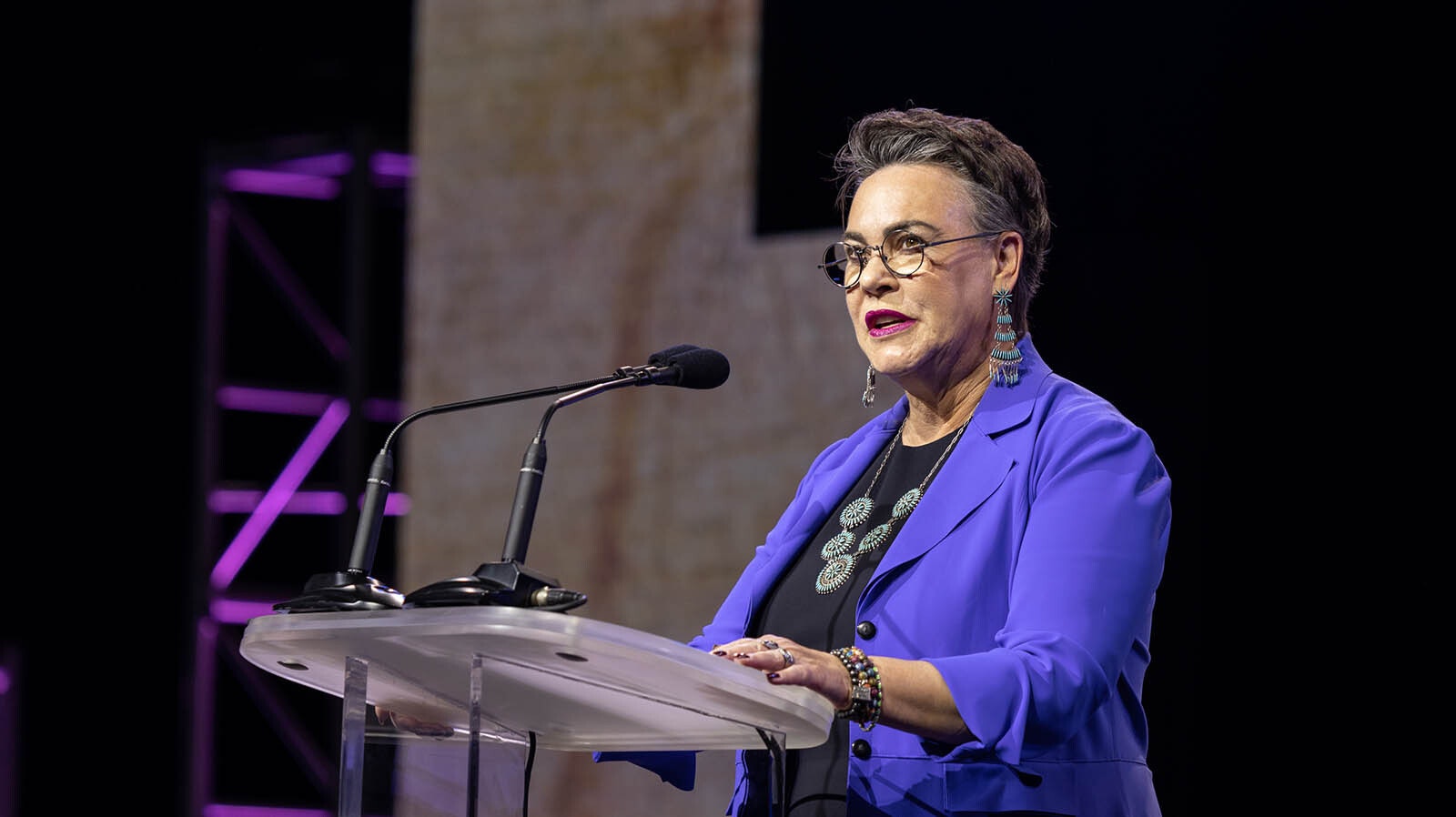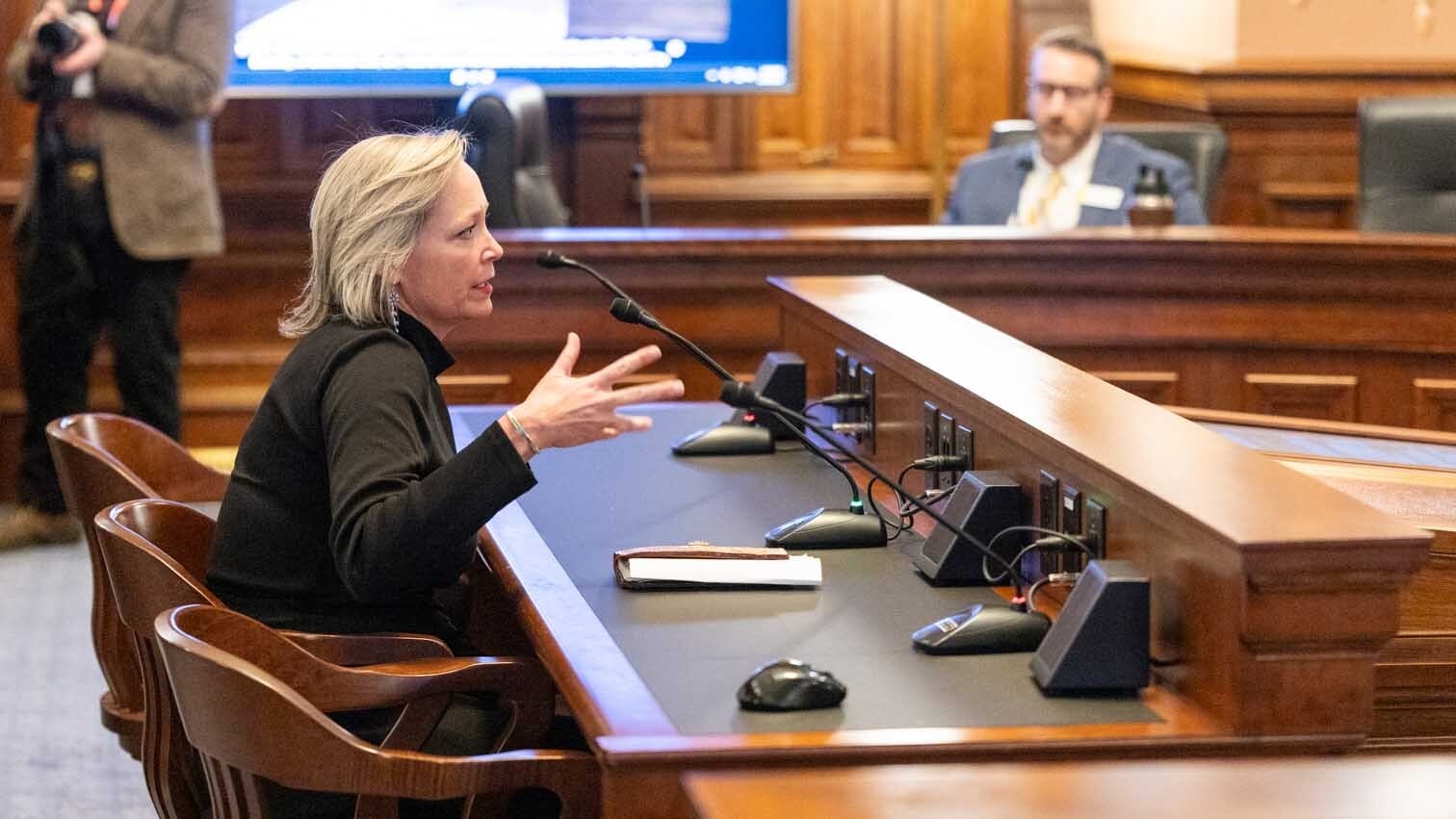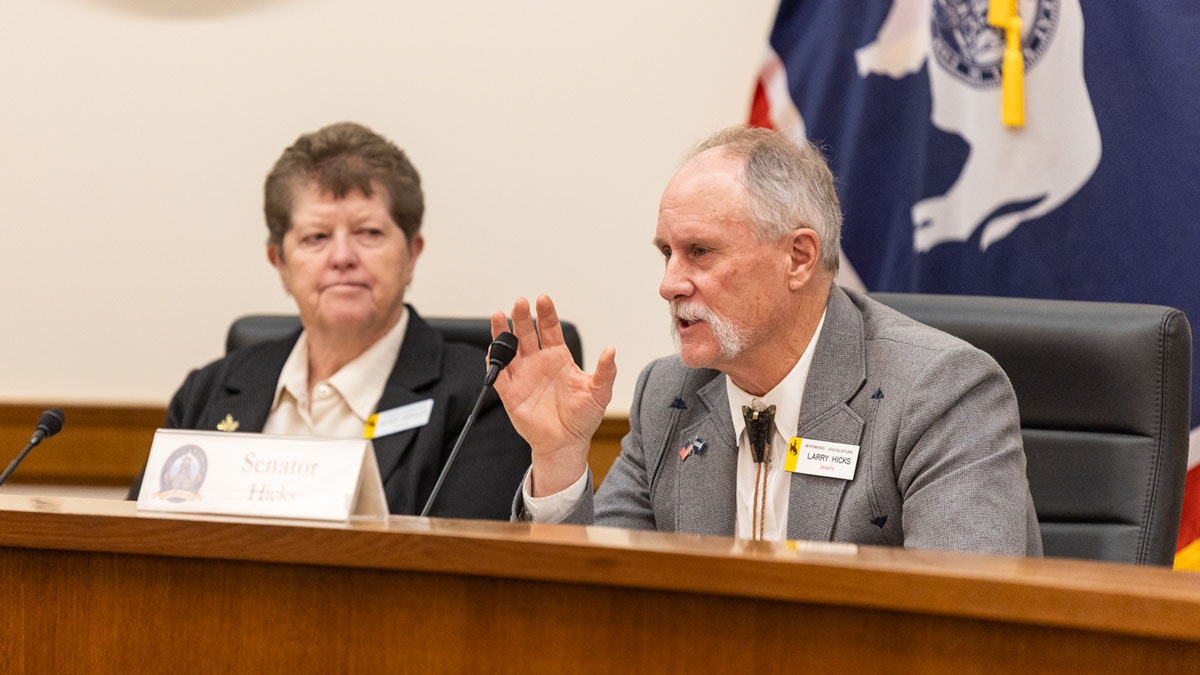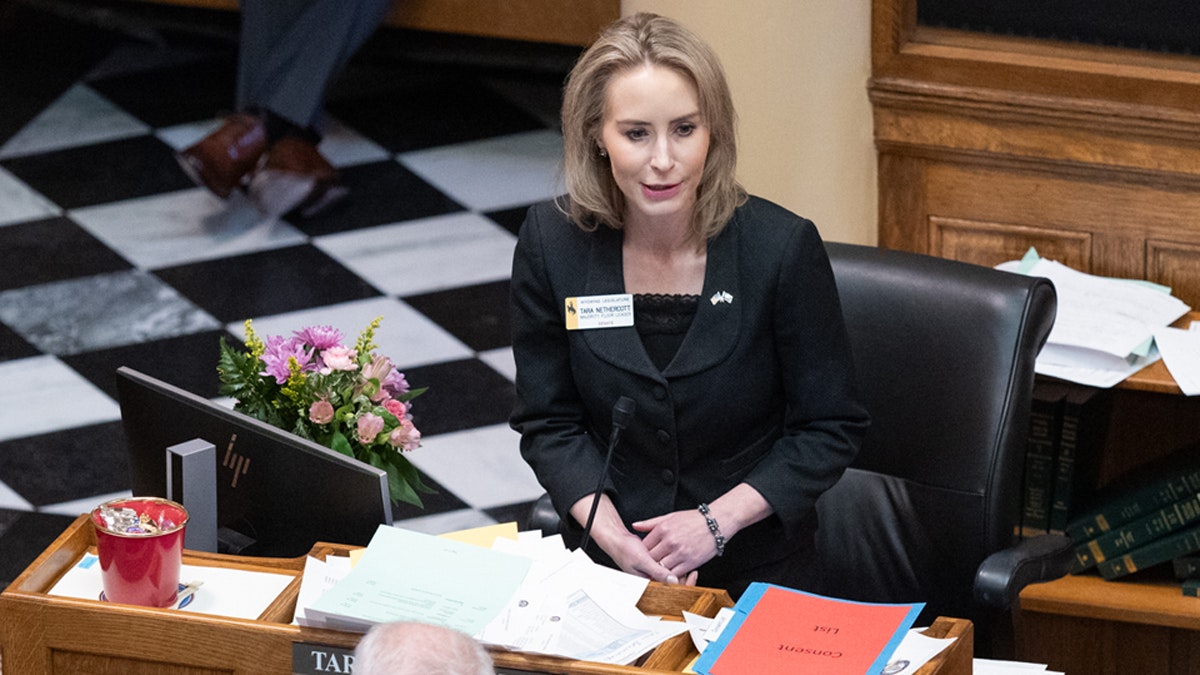U.S. Rep. Harriet Hageman has no interest in expanding welfare or giving illegal immigrants more benefits in the United States. That’s why she voted against a $78 billion tax bill Wednesday.
Lawmakers from both parties touted the bill as a policy victory and proof that the sharply divided House can work together. The bill has the support of the White House and key leaders in both parties.
“Tax relief for families and small businesses is something that, in and of itself, should be bipartisan and something I greatly support,” Hageman said in a press release. “Unfortunately, to win enough votes for provisions that help these groups, and America as a whole, this bill included the undoing of legitimate welfare reform and potential benefits for illegal immigrants.”
The bill received bipartisan support, passing 357-70. Hageman was one of 47 Republicans to vote against it.
Hageman said touting the bill as a bipartisan win is disingenuous.
“To require members to support illegal aliens receiving hard working American tax dollars and expanding the welfare state for the sake of ‘bipartisan political wins’ is ridiculous,” she said. “It is far past time that we put working-class Americans first.”
Under current law, illegal immigrants who have children born in the U.S. can claim welfare benefits for these children. The bill, H.R. 7024, continues and expands this right.
Child Tax Credit
The federal government already spends about $1.2 trillion annually on supporting welfare services, which would grow under the legislation.
The tax package expands the child tax credit, a signature goal for President Joe Biden’s administration. Hageman said the tax cuts orchestrated under former President Donald Trump were much more of an economic boost for Americans.
She also criticizes the fact that more than 90% of the “family benefits” included in the bill come in the form of cash welfare for families that she describes as paying little or no federal income or Social Security taxes.
The legislation would make the $2,000-per-child credit more accessible to families with multiple children and gradually raise the cap on how much lower-income families can claim to match the amount for higher-income families.
Parents could use their previous year’s earnings to claim a larger tax credit, which some conservatives have argued would discourage people from working.
The bill also rolls back work requirements to qualify for welfare, increases the low-income housing tax credit and extends tax benefits to disaster victims.
Discontent
Many Democrats conversely argued that the bill does not expand the child tax credit enough. During the COVID-19 pandemic, a $3,600-per-child tax credit was deposited in families’ bank accounts.
The bill also restores a set of business tax breaks through 2025.
“I cannot vote for a deal that so lopsidedly benefits big corporations while failing to ensure a substantial tax cut to middle- and working-class families,” said Rep. Rosa DeLauro, D-Connecticut, on the House floor.
House Speaker Mike Johnson, R-Louisiana, brought the legislation to the floor under special procedures that required a two-thirds majority for passage, which allowed him to steer around those who would’ve sought to block the bill.
Discussion of the bill was not subject to an open rule, meaning no amendments by members of Congress could be added to the bill. Hageman said this rule came about as “a deal literally negotiated in the backrooms with limited input and presented for a vote through a process that blocked debate.”
The bill will head to the Senate next, where Republicans have already expressed trepidation about supporting it.
Leo Wolfson can be reached at leo@cowboystatedaily.com.





